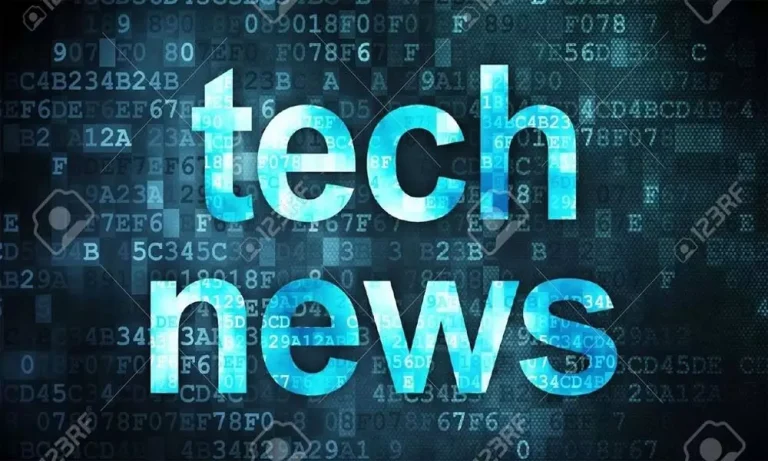Generative AI has become a critical tool for businesses seeking to streamline tasks and enhance productivity. Today, generative AI can generate everything from written content and music to product designs and programming code, paving the way for unprecedented levels of automation.
The demand and impact of cutting down on repetitive tasks is real. Generative AI solutions such as Azure OpenAI Service improve productivity and are useful for content creation, scientific advancement, customer service, and marketing automation.
According to a 2023 report by McKinsey Global Institute:
- Combining generative AI with all other technologies could add 0.2 to 3.3 percentage points annually to productivity growth.
- Generative AI could further reduce the volume of human-serviced contacts by up to 50 percent, depending on a company’s existing level of automation.
- AI agents integrated through APIs could act nearly autonomously or as copilots, giving real-time suggestions to agents during customer interactions.
- In the lead identification stage of drug development, scientists can use foundation models to automate the preliminary screening of chemicals to search for those that will produce specific effects on drug targets.
- A 2023 BCG (Boston Consulting Group) article reported that emails drafted by a generative AI application achieved 18 percent higher customer happiness scores than humans’ email responses.
By streamlining tasks that were previously manual, time-consuming, and error-prone, generative AI is not just a tool for businesses—but a critical driver of future success.
How partners benefit from Generative AI
Customers around the globe have benefitted from the Microsoft AI Cloud Partner Program by allowing them to build quickly, scale growth, and sell worldwide. AI-specific benefits help partners leverage Microsoft’s extensive resources such as access to AI expertise, and network to develop, market, and sell AI solutions, thereby enhancing their competitiveness in the rapidly growing field of artificial intelligence.
Let’s have a look at how five partners (Commerce.AI, Datadog, Modern Requirements, Atera, and SymphonyAI) have powered their customers’ transformations and derived value from using generative AI.
Commerce.AI
Commerce.AI uses a combination of its own technology, Microsoft, and OpenAI solutions to streamline productivity in customer support centers using automation. When a customer call is received, Azure AI Services transcribes it in real-time using a custom Commerce.AI model, and, if necessary, translates it. Post-call, the system utilizes OpenAI technology to automatically generate a summary, determining any follow-up actions and exporting the data to Microsoft Dynamics 365, thereby eliminating the need for agents to write post-call notes. Commerce.AI’s solutions are lauded for enhancing productivity by up to 50 percent, increasing efficiency, and delivering instant insights.
“With OpenAI models, the answers to our questions are ready the moment we ask them,” says Andy Pandharikar: Founder and Chief Executive Officer at Commerce.AI. “What we’ve done at Commerce.AI using Azure OpenAI Service is supercharge our customers’ ability to take action based on those insights through automation.”
By automating workflows, Commerce.AI can respond swiftly to shifts in customer priorities. By analyzing unstructured data and using the insights to automate new ad campaigns or launch new products, Commerce.AI predicts that the cost of generative AI in business will decrease as its applications expand.
Datadog
Since launching its first monitoring solution for Azure Virtual Machines in 2015, Datadog has expanded its capabilities by embedding observability solutions within the Azure portal and developing over 600 in-house integrations. With many of Datadog’s customers leveraging Azure OpenAI Service, Datadog developed a seamless Azure OpenAI Service integration to expedite monitoring operations and improve efficiency.
This integration provides comprehensive monitoring for cloud-native and hybrid workloads, accelerates cloud adoption journeys, brings innovative monitoring capabilities, and guarantees best-in-class service quality.
“We have everything configured for autoscaling,” explains Benjamin Pineau, Senior Software Engineer at Datadog, “and Azure will always adapt to our needs, upping capacity by several hundreds of high-memory instances to ingest a spike and then slowing back down in a matter of minutes.”
Since launching this solution at Microsoft Build 2023, hundreds of organizations, including Fortune 50 and large global multinational companies, have adopted Datadog to monitor their AI applications. The solution enables these companies to monitor analytics, optimize costs, and troubleshoot issues in AI-powered applications, freeing up their development teams to focus on customer-centric product development. With this integration, customers can access metrics from Azure Virtual Machines, tag Azure metrics with resource-specific data, gain unique insights into their Azure environment, and correlate data across various Azure applications.
Modern Requirements
Modern Requirements is committed to optimizing the requirements processes of its customers through automation. Their key services include providing the tools necessary for effective project management throughout their life cycles, hastening time to market, and enhancing project quality. Their target sectors range from healthcare and financial services to automotive, aviation, and government, all of which have the common need for regulatory compliance, auditability, and seamless workflow solutions.
The foundation of Modern Requirements’ solution is Microsoft Azure DevOps, chosen for its scalability and security. The integration with Azure OpenAI Service further enhances this with its multifaceted model capable of handling various tasks while ensuring data privacy and security. This integration requires minimal training and opens doors for significant enhancements through OpenAI.
Designed with intent, Modern Requirements4DevOps serves both Modern Requirements’ and Microsoft’s clients in their product development life cycles by automating numerous functions. It further enriches this service with the introduction of Copilot4DevOps, an implementation of ChatGPT in Modern Requirements4DevOps. This tool automates several phases in the product development life cycle, freeing users to focus more on analytical and collaborative tasks.
Modern Requirements4DevOps relieves workflow and data management burdens, storing all information in a single source of truth in Azure DevOps. The extension also transforms Azure DevOps into a knowledge management system, moving away from just record-keeping and workflow management.
The solution is used by requirements engineers, business analysts, test leads, compliance leads, project managers, and project architects for information provision, reuse, and collaboration. It effectively substitutes up to half a dozen costly tools, providing an integrated, supportive, and affordable alternative for their clients.
Atera
Atera, an Israeli software company, has set a mission to increase IT efficiency tenfold through its AI-powered IT Platform. Developed in collaboration with Microsoft using Azure OpenAI Service, this groundbreaking tool offers a comprehensive view of IT activities and proactively identifies and resolves issues, allowing IT professionals to concentrate on critical tasks.
The platform, serving 11,000 customers across 105 countries, is revolutionizing the way IT issues are handled. It collects metrics continuously, offers immediate solutions, and remotely fixes machines. When customers contact IT support, the autopilot responds instantly with solutions, while a co-pilot takes over in case of complex issues, offering a summarized problem description and recommended solutions to technicians.
“Instead of spending 20 minutes trying to understand the problem, 15 minutes deciding on a solution, and then possibly 40 minutes to remotely fix the issue or two hours writing a script to run it, the technician can focus directly on fixing the issue,” says Oshri Moyal, Co-Founder and CTO of Atera. “All it takes is a few clicks, and the problem is solved. This change means a single technician can go from handling seven to 70 cases per day.”
SymphonyAI
Financial crime, which includes fraud and money laundering, is a major global concern, costing around five percent of the global GDP, and is linked to crimes like human trafficking and terrorism, among others. SymphonyAI is taking innovative steps to address this problem. The company’s Sensa-NetReveal division offers AI-powered solutions designed to detect financial crime and assist financial investigators. They have integrated AI algorithms and machine learning models into their platform to identify previously undetected risk areas, aiming to complete investigations up to 70 percent faster and with 70 percent less effort from human investigators.
Their Sensa Copilot—built on the Azure infrastructure, Azure Kubernetes Service (AKS), Azure AI solutions, and Azure OpenAI—was introduced in May 2023, and is designed to assist financial crime investigators by automatically collecting, collating, and summarizing financial and third-party information, identifying behaviors associated with money laundering, and efficiently analyzing these activities. Investigators can also use it to draft suspicious activity reports (SAR).
In early testing, the Sensa Copilot was shown to increase the productivity of a financial institution’s compliance department by approximately 60 percent, given the volume of alerts these institutions receive daily. This marks a significant shift in the financial crime investigation landscape. In a world where time and efficiency are of the essence, the five above-mentioned Microsoft Partners serve as an inspiration for all businesses, irrespective of their sector or size, to embrace the opportunities offered by generative AI.
Our commitment to responsible AI
Microsoft has a layered approach for generative models, guided by the Microsoft AI Principles. In Azure OpenAI, an integrated safety system provides protection from undesirable inputs and outputs and monitors for misuse. In addition, Microsoft provides guidance and best practices to help customers responsibly build applications using these models and expects customers to comply with the Azure OpenAI Code of Conduct.


